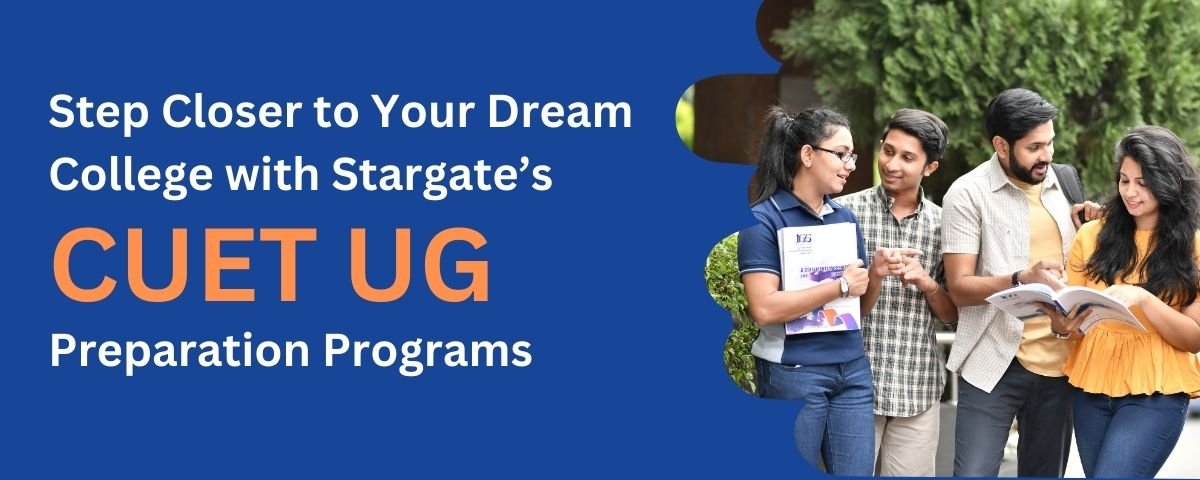
The Science of Guessing in CUET UG: Smart Strategies
The Common University Entrance Test (CUET UG) is not only about knowing the right answers but also about managing uncertainty. With multiple-choice questions and negative marking, students often face the dilemma of whether to attempt a question or leave it blank. Many believe guessing is pure luck, but in reality, there’s a science behind guessing smartly.
When done strategically, educated guessing can maximize your score without recklessly losing marks. This blog explores the psychology, probability, and practical methods of risk-taking in CUET UG, teaching you how to make the best possible decisions under exam pressure.
Why Guessing Matters in CUET UG
1. Not Every Question Will Be Familiar – Even the best-prepared students encounter tough or confusing questions. Strategic guessing helps you navigate these without panicking.
2. CUET UG Negative Marking System – Since incorrect answers carry penalties, random guessing is dangerous. But calculated risk-taking can work in your favor.
3. Competitive Advantage – Many students leave tough questions unattempted. By applying guessing techniques, you can score where others don’t.
Understanding the Probability of Guessing
Let’s break it down with some math:
– CUET UG MCQs usually have 4 options.
– Random guessing gives you a 25% chance of being correct.
– With elimination, you can improve your odds:
* Eliminate 1 option → 33% chance.
* Eliminate 2 options → 50% chance.
* Eliminate 3 options → 100% chance.
So the goal is not blind guessing, but using logic to narrow choices and improve probability.
The Elimination Technique
One of the most powerful guessing strategies is elimination. Here’s how it works:
1. Look for extreme words – Options like always, never, only, completely are often incorrect.
2. Compare option lengths – Very long or overly detailed options may be correct as they add specifics.
3. Opposites technique – If two options are exact opposites, one of them is usually correct.
4. Context matching – In comprehension or reasoning, some options simply don’t fit logically. Strike them off.
5. Units and logic check – In quantitative problems, eliminate answers with impossible units or unrealistic numbers.
Managing Negative Marking
To guess smartly, you need a risk-reward framework.
– Rule 1: Don’t attempt if you have zero clue.
– Rule 2: Attempt if you can eliminate at least one option.
– Rule 3: Take educated risks on borderline questions.
– Rule 4: Balance accuracy and attempts.
Probability-Based Guessing: Practical Tips
1. Use patterns cautiously – Don’t assume option ‘C’ is always correct.
2. Leverage previous questions – Sometimes, one question indirectly gives clues to another.
3. Trust first instincts – Your initial choice is often more accurate than overthinking.
4. Watch for repetition – If two options are very similar, one of them is usually correct
Section-Wise Guessing Strategies
Language Section:
– Use grammar rules to eliminate wrong tenses.
– Eliminate contextually irrelevant words.
Domain Subjects:
– Eliminate options that contradict NCERT facts.
– Avoid oversimplified statements.
General Test:
– Use diagrams in reasoning.
– Eliminate impossible values in quant.
– Use partial recall in GK.
Common Mistakes Students Make in Guessing
1. Over-guessing without logic.
2. Spending too long on one tough question.
3. Changing answers repeatedly.
4. Overconfidence in instincts.
5. Guessing in a pattern blindly.
Smart Risk-Taking Framework
Here’s a step-by-step approach:
1. First round → Attempt confident questions.
2. Second round → Attempt questions with 1–2 eliminations.
3. Final round → Attempt borderline guesses with ≥33% probability.
4. Skip completely clueless questions.
Practice Through Mock Tests
The science of guessing requires practice in mock tests.
– Review guessed answers after every mock.
– Track your success rate in educated guesses.
– Adjust strategies based on accuracy.
Pro Tip: Institutions like Stargate Education provide mock tests with detailed analytics, helping students refine their guessing strategy before the real exam.
Conclusion
Guessing in CUET UG is not about luck — it’s about applying logic, probability, and elimination techniques while managing negative marking smartly. By practicing these strategies in mocks and learning from mistakes, you can transform guessing from a risky gamble into a scoring weapon.
Remember: In CUET UG, knowledge opens doors, but smart risk-taking decides who gets ahead.
Connect With Us
If you’re serious about CUET 2026 and want expert guidance to get into your dream college, reach out to Stargate Education. Call us at 7210032621 and our team will help you with all the details, demo sessions, and batch timings.
We’re here to guide you every step of the way!
Start Your Journey to CUET UG Success Today!
Register now and gain exclusive access to invaluable resources designed to enhance your CUET UG preparation journey.








